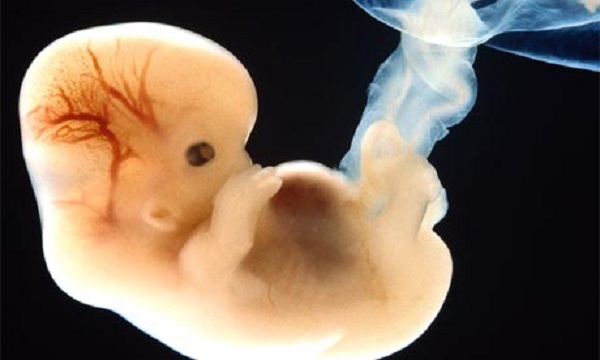A shocking new report indicates scientists have found a way for human embryos to live outside the womb for 14 days, which is a record, so they can be experimented on for a longer period of time.
Leading pro-life advocates are outraged that scientists would specifically create unique human beings to purposefully experiment on and later destroy just for research. They are worried scientists will continue creating more unborn human people who will be subjected to research for a longer duration of their embryonic life.
In a piece made public today, commentators Insoo Hyun, Amy Wilkerson, and Josephine Johnston encourage research groups to culture human embryos beyond 14 days, and continue experimenting on them, exceeding the long standing guideline and, in some countries, legal limit that no research be done on human embryos past 14 days’ post-conception.
Here’s more on the grisly research:
A human embryo has been grown in a laboratory for twice the length of time than was previously possible in a breakthrough that could “revolutionise” medicine but also raises fresh ethical questions about when life begins.
Since scientists first fertilised an embryo in a test tube in 1969, they have never managed to keep one alive for long after the point at which the foetus implants in the womb, normally about seven days.
However researchers at Cambridge University have now grown embryos for 13 days — a process they only stopped to avoid breaking the current legal limit of about 14 days.
The ability to observe a human embryo as it grows during this “most enigmatic and mysterious” stage of life in a lab should shed new light on genetic diseases and disabilities.
And it could help improve the dismal failure rate of IVF embryos — currently up to 70 per cent do not successfully implant – and lead to better understanding of miscarriages.
Keep up with the latest pro-life news and information on Twitter. Follow @LifeNewsHQ
About 14 days – the limit is also linked to biological changes — was chosen in the 1980s because it was deemed to be the point at which “individuality” is assigned as twins do not develop after this point.
But Charlotte Lozier Institute Vice President and Director of Research, Dr. David Prentice, slams the commentators for seeking to move the limit. Prentice, also a LifeNews.com writer, argues that it has become inconvenient in their eyes, especially as experiments reliant on embryonic stem cells, fetal tissue, and other morally problematic means have yielded little results.
“If you haven’t read Brave New World in a while, it’s time to refresh the memory,” said Dr. David Prentice, a professor of molecular genetics and an Advisory Board Member for the Midwest Stem Cell Therapy Center. “No human being should be used for lethal experimentation, no matter their age or stage of development. The 14-day rule is itself arbitrary, and does not assuage those who believe life begins at the moment of sperm-egg fusion. Moreover, allowing experiments on human embryos beyond 14 days post-fertilization risks the lives of untold more human beings, because it further encourages creation and destruction for research purposes. The deadly research on young human embryos has yielded no benefit thus far, meanwhile morally unproblematic means are delivering treatments and even cures for some of the most pressing health issues of our day.
“If this research does not stop at 14 days, where does it stop?” continued Prentice. “Is there any bright line which should not be crossed? This is a risky step which could encourage further eugenic attitudes and actions. Congress ought to have a full and open debate on the issue of human embryo research before the research community moves further without oversight.”
Kristan Hawkins, president of Students for Life of America,is also very concerned.
“Science has undeniably proven that a new human life, with unrepeatable DNA, begins at conception. There is no reason for experimentation on that human life and science itself should not be heralding that fact that a tiny human being can survive now for two weeks outside of the womb, all for the sole purpose of experimentation,” she told LifeNews.
Hawkins continued: “Where is the line drawn next – at a month post-conception, at three months post-conception? The abortion industry has yet to meet a line in the sand they won’t cross when it comes to making money off of selling the aborted baby body parts for research. By heralding the length of time a new human being can survive outside the womb in the name of scientific research is sick and twisted.”








